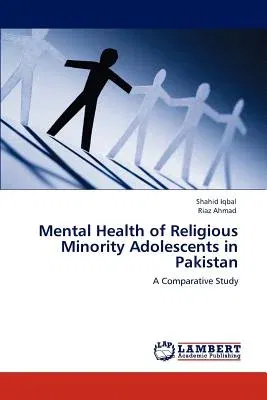Shahid Iqbal
(Author)Mental Health of Religious Minority Adolescents in PakistanPaperback, 23 March 2012

Qty
1
Turbo
Ships in 2 - 3 days
In Stock
Free Delivery
Cash on Delivery
15 Days
Free Returns
Secure Checkout
Print Length
224 pages
Language
English
Publisher
LAP Lambert Academic Publishing
Date Published
23 Mar 2012
ISBN-10
3848442027
ISBN-13
9783848442027
Description
Product Details
Authors:
Book Format:
Paperback
Country of Origin:
US
Date Published:
23 March 2012
Dimensions:
22.86 x
15.24 x
1.3 cm
ISBN-10:
3848442027
ISBN-13:
9783848442027
Language:
English
Location:
Saarbrucken
Pages:
224
Publisher:
Weight:
335.66 gm

